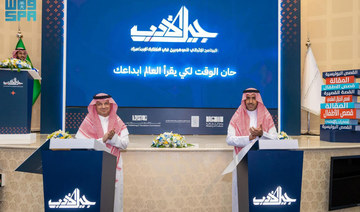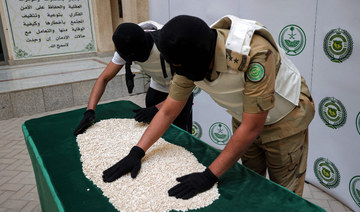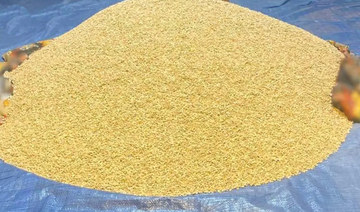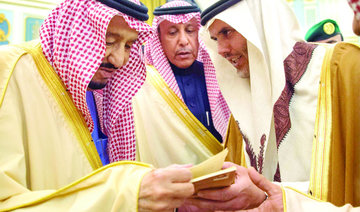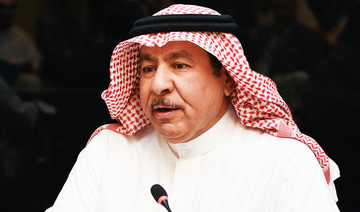KARACHI: Destine to become the fourth fastest growing economy by 2030, Pakistan, supported by a growing population, fast growing business and increasing penetration of Internet, is poised to grab first position among the digital economies, Information Technology (IT) experts say.
US technology giant, Google, says Pakistan is quickly becoming a “digital-first country”, which means there are new opportunities for brands to reach and engage with consumers that may have previously been overlooked.
“It shows that Google has realized the marketing potential of the country and they are now encouraging businesses to focus on Pakistan as a potential market,” Badar Khushnood, vice president of growth at Fishry.Com and vice chairman of P@SHA, commented.
According to Google, there are five reasons for “considering expanding your digital campaigns into Pakistan”.
Pakistan’s growing population is the first reason that makes the country attractive for the foreign and local investors to venture into the IT sector.
“Pakistan has a population of more than 202 million people, which means there are lot of potential consumers coming online every day. And the country is even more urbanized than neighboring India, with nearly 40 percent of total households living in cities,” writes Lars Anthonizen, head of large customer marketing, South Asia, Google.
Pakistan’s economy grew by 5.7 percent in fiscal year 2018. HSBC in is recent report published in September 2018 has projected Pakistan to become the fourth fastest growing economy by 2030.
Around 90 percent of the companies in the country are SMEs which are contributing more that 40 percent to the country’s 313 billion economy, according to the State Bank of Pakistan.
Third attraction, according to Google, is the country’s growing smart phone users. Pakistan has 152 million cellar subscribers, and 60 million 3G/4G subscribers, according to Pakistan Telecommunication Authority (PTA).
This number will likely grow quickly as smart phone prices have dropped over the last few years. Pakistan also has some of the cheapest data prices in the world, which is helping to grow mobile app usage, according to Google.
However, experts say more work is needed to be done to fully utilize the existing potential. “We need to work on optic fibers, penetration of 4G, creation of data centers, telecom infrastructure and most importantly creation of awareness among masses,” Pervaiz Iftikhar, a member of the newly formed prime minister’s Taskforce on IT and Telecom, told Arab News.
Pakistan’s overall Internet penetration stands at 29.9 percent with 62 million broadband subscribers, a fourth attraction for the investor, as per Google. In spite of this, digital consumption in the country continues to grow quickly. YouTube watch time, for example, has seen over 60 percent growth over the last three years.
The Chinese-Pakistan Economic Corridor (CPEC) is the largest Chinese investment venture in Pakistan with around $62 billion, a fifth reason to look toward Pakistan.
The mega project under BRI is not only limited to the infrastructure and energy sector but it is also contributing to the growth of the IT sector in Pakistan.
“One of the first CPEC projects is to lay 820 kilometers of fiber-optic cable, connecting more Pakistanis to the Internet. This is in addition to ongoing investments in 3G and 4G network expansions from China Mobile, and the company has already announced plans to invest another $225 million in 4G expansion (bringing its total investment to $2.4 billion),” writes Lars Anthonizen.
“We have to connect every village through fiber optics that will not only create thousands of jobs but would multiply opportunities for the IT business countrywide,” Pervaiz Iftikhar added.
“A lot of potential exists in the IT sector of Pakistan with the young population turning to computers, smart phones and other digital means, and the country offers big market for local and foreign investors”, Jehan Ara, another member of the prime minister’s Taskforce on IT and Telecom and president of P@SHA, commented.
Badar Khushnood, who is also former consultant of Google, Facebook and Twitter, called for comprehensive policy for the growth of the IT sector.
“Taxation systems should be rationalized, simplified, and encouraging for startups. The country also needs data protection laws, and broader cyber laws,” he added.
The first meeting of the prime minister’s Task Force on IT and Telecom is expected to be held next week in Islamabad. “Comprehensive strategy including short term and long term measures would be discussed in the upcoming meeting of taskforce because country needs a policy for the persistent growth of IT and Telecom sector”, Pervaiz Iftikhar informed.
Pakistan fast becoming ‘Digital-first country’ — Google
Pakistan fast becoming ‘Digital-first country’ — Google
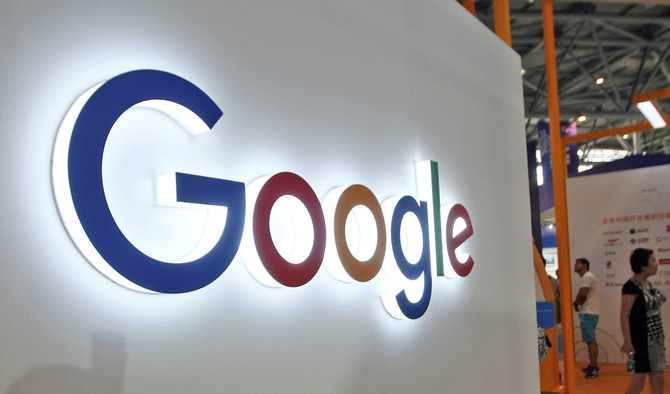
- Google white paper lists five reasons to expand digital campaigns to Pakistan
- Pakistan is on track to produce one of the largest digital audiences in the world
Open Forum Riyadh to discuss digital currency, AI, and mental health

- The event will run in parallel to the WEF’s Special Meeting on Global Collaboration
LONDON: The Open Forum Riyadh — a series of public sessions taking place in the Saudi capital on Sunday and Monday — will “spotlight global challenges and opportunities,” according to the organizers.
The event, a collaboration between the World Economic Forum and the Saudi Ministry of Economy and Planning, will run in parallel to the WEF’s Special Meeting on Global Collaboration, Growth and Energy for Development, taking place in Riyadh on April 28 and 29.
“Under Saudi Vision 2030, Riyadh has become a global capital for thought leadership, action and solutions, fostering the exchange of knowledge and innovative ideas,” Faisal F. Alibrahim, Saudi minister of economy and planning, said in a press release, adding that this year’s Open Forum being hosted in Riyadh “is a testament to the city’s growing influence and role on the international stage.”
The forum is open to the public and “aims to facilitate dialogue between thought leaders and the broader public on a range of topics, including environmental challenges, mental health, digital currencies, artificial intelligence, the role of the arts in society, modern-day entrepreneurship, and smart cities,” according to a statement.
The agenda includes sessions addressing the impact of digital currencies in the Middle East, the role of culture in public diplomacy, urban development for smart cities, and actions to enhance mental wellbeing worldwide.
The annual Open Forum was established in 2003 with the goal of enabling a broader audience to participate in the activities of the WEF, and has been hosted in several different countries, including Cambodia, India, Jordan and Vietnam.
The panels will feature government officials, artists, civil-society leaders, entrepreneurs, and CEOs of multinationals.
This year’s speakers include Yazeed A. Al-Humied, deputy governor and head of MENA investments at the Saudi Pubic Investment Fund; Princess Reema Bandar Al-Saud, Saudi Arabia’s ambassador to the US; and Princess Beatrice, founder of the Big Change Charitable Trust and a member of the British royal family.
Michele Mischler, head of Swiss public affairs and sustainability at the WEF, said in a press release that the participation of the public in Open Forum sessions “fosters diverse perspectives, enriches global dialogue, and empowers collective solutions for a more inclusive and sustainable future.”
Saudi chemistry duo add to KSA medal haul
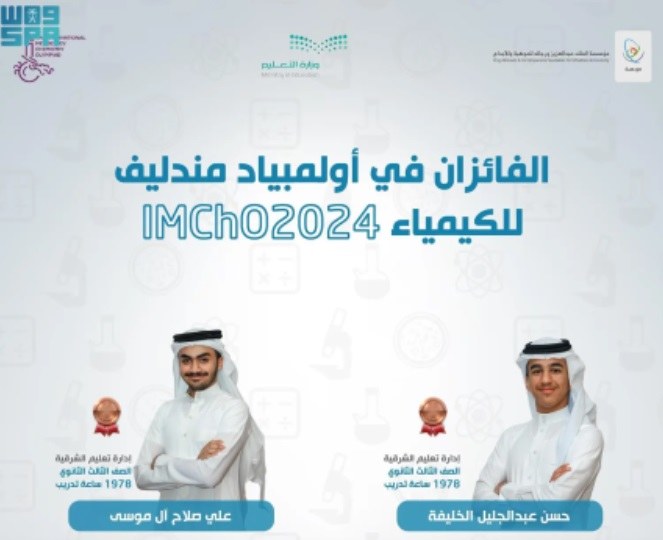
- Team members were selected by Mawhiba
RIYADH: Two Saudi students have added to the Kingdom’s medal haul at the 2024 Mendeleev International Chemistry Olympiad being held in China from April 20-27.
Hassan Abdul Jalil Al-Khalifa, a third-grade secondary student from the Provincial Department of Education, Eastern Province, and fellow student Ali Salah Al-Moussa claimed bronze medals at the competition, lifting the Kingdom’s overall tally to three silver and 20 bronze.
More than 150 students from 27 countries are competing at the 58th session of the Olympiad.
Saudi Arabia is represented by a team of six students from several educational institutions.
Team members were selected by the King Abdulaziz and his Companions Foundation for Giftedness and Creativity, also known as Mawhiba.
Students were chosen after attending a series of forums over the course of two years, and were trained by Mawhiba, in partnership with the King Abdullah University of Science and Technology.
Saudi deputy minister of interior heads delegation at first conference to combat drug trafficking
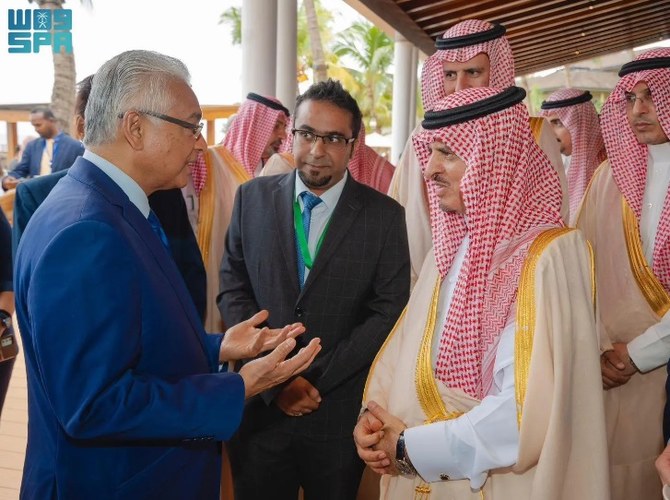
- Kingdom’s participation in the conference was an extension of its efforts in the war on drugs
MAUTIRIUS: Dr. Nasser bin Abdul Aziz Al-Dawood, Saudi deputy minister of interior, headed the Kingdom’s delegation participating in the first conference to combat drug trafficking and substance abuse, held in Mauritius, which concluded on Thursday.
Al-Dawood said that the Kingdom’s participation in the conference was an extension of its efforts in the war on drugs, monitoring and diagnosing their effects and harms, and strengthening international cooperation procedures and information exchange to combat the activities of organized crime networks in general, and drug crime in particular.
Cultural Communication Center holds human communication diwaniya
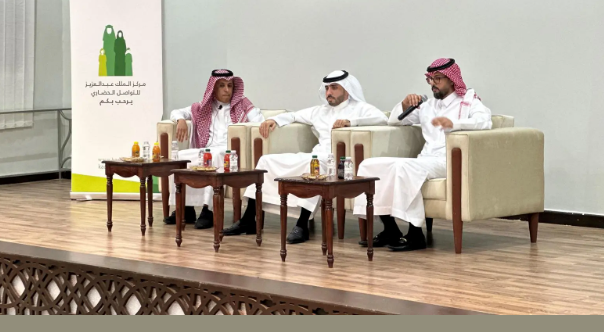
- The diwaniya tackled three themes
SAKAKA: The King Abdulaziz Center for Cultural Communication in cooperation with Al-Jouf Youth Association, held the Cultural Communication Diwaniya “Basic Pillars for Human Communication in the Kingdom” in Sakaka on Thursday.
The diwaniya tackled three themes: the ethics of human communication; the dimensions of human communication according to Vision 2030; and human communication according to international law.
Abdulaziz bin Abdulwahad Al-Hamwan, the center’s supervisor in Al-Jouf, said the goals of diwaniya were to “enhance national and human communication, consolidate the values of national cohesion, and spread the culture of human communication skills among beneficiaries.”
Global logistics giant shows interest in developing Pakistan’s first green transshipment terminal
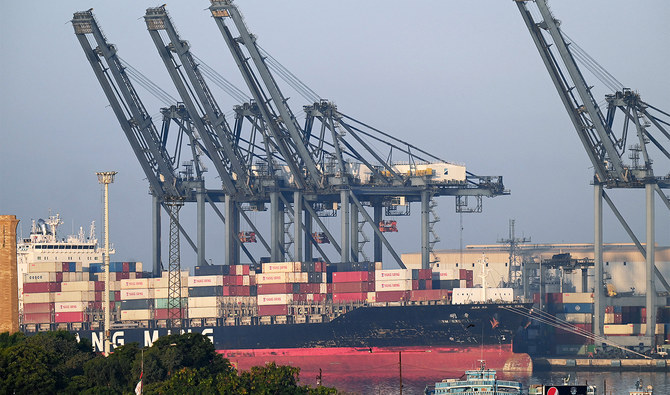
- APM Terminals sent a delegation to meet Pakistani officials and discuss the modernization of its ports
- The integrated container logistics company also develops and operates ports in countries across the world
ISLAMABAD: A delegation from a leading logistics company, A.P. Moller-Maersk (APM) Terminals, expressed interest in developing the first transshipment terminal in Pakistan while holding a meeting with Prime Minister Shehbaz Sharif on Friday.
Maersk is an integrated container logistics company operating in 130 countries. APM Terminals has been developing and operating advanced ports and container terminals for over half a century and has 60 strategically located ports and container terminals around the globe and several more in development.
The company delegation arrived in Pakistan earlier this week to discuss the possibility of developing and modernizing the South Asian nation’s ports and held separate meetings with Finance Minister Muhammad Aurangzeb and Minister for Maritime Affairs Qaiser Ahmed Sheikh.
“The prime minister expressed interest in cooperation between Pakistan and Denmark in the fields of agriculture and environment-friendly energy projects,” Radio Pakistan reported after Sharif’s meeting with the delegation led by the company CEO Keith Svendsen.
“Svendsen expressed satisfaction on the investment and business friendly policies of Pakistan,” it added. “He showed interest in the first green transshipment terminal of Pakistan in Karachi.”
The construction of the project would allow large cargo ships to utilize the Karachi port, helping the country earn greater revenue.
Previously, the country’s finance minister told the delegation Pakistan was keen to explore future projects and investments with APM, especially in the maritime sector.
“The government is fully committed to facilitate an environment conducive to business and investments,” he told them.
Svendsen and his delegation also met the maritime affairs minister on Thursday and discussed investment prospects in Pakistan’s ports and terminals sector.
“The delegation head highlighted Moller-Maersk’s prominent global position and its robust relationship with Pakistan, which reflects a market share of approximately 20 percent in containerized import-export activities,” Radio Pakistan said.
“Recognizing the immense growth potential, Keith Svendsen proposed investments to enhance integrated supply chain solutions, including the upgrading of ports and logistics infrastructure. The delegation pledged support for the advancement of maritime affairs in Pakistan and for nurturing a skilled workforce in this sector.”
On Monday, Pakistani and United Arab Emirates (UAE) officials performed the groundbreaking of a $175 million Bulk and General Cargo terminal as part of a new 25-year concession agreement signed between AD Ports Group and Karachi Port Trust (KPT) in Feb. 2024 to outsource operations of the terminal.
Under the terms of the agreement, Karachi Gateway Terminal Multipurpose Limited (KGTML), a joint venture between AD Ports Group, as a majority shareholder, and Kaheel Terminals, a UAE-based company, will develop, operate and manage the Bulk and General Cargo Terminal, berths 11 to 17 at Karachi Port’s East Wharf.





